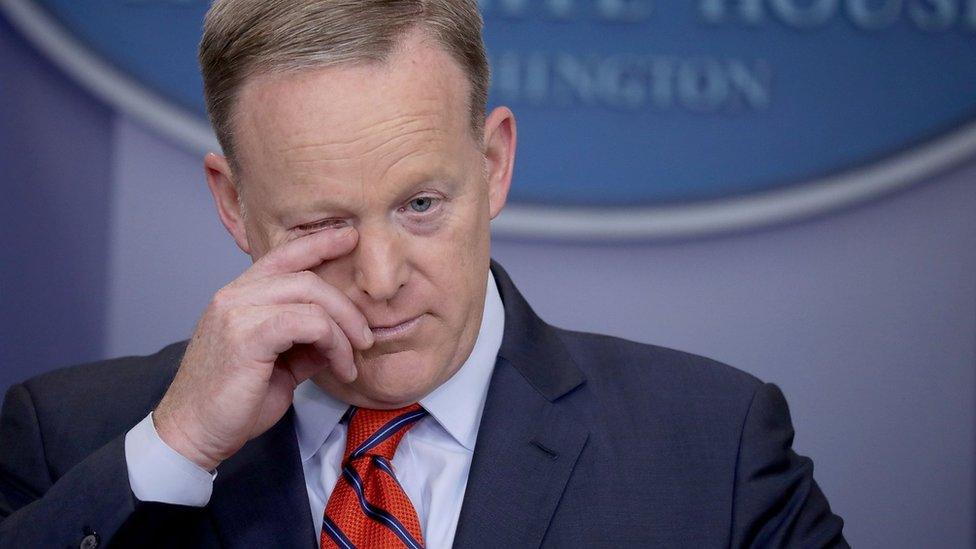Katty Kay: Spicer had choice - apologise or dig
- Published

It's never clear to me why it's so hard for people to say sorry. It's a simple word, just two syllables and its positive impact is enormous.
But to be effective the "sorry" needs to come fast and be said sincerely. Take too long or add a caveat and your apology loses its power.
White House press secretary Sean Spicer and United Airlines chief executive Oscar Munoz could both go to apology classes today.
Mr Munoz came up with his sincere apology late today - 48 hours and three attempts too late.
He did finally say he was "deeply" sorry for the terrible way a passenger was treated on a United flight, and said the airline took full responsibility.
But since this followed a previous statement that was totally defensive, suggesting the forced "re-accommodation" was the passenger's own fault for being belligerent, Mr Munoz's ultimate "sorry" just didn't sound so sincere.
If Mr Munoz had come out on Monday morning with the statement he finally put out on Tuesday afternoon, he'd be in a much better PR position. He had to say sorry eventually; all he got by waiting was a slump in the company's share price and millions of angry customers.
John Klaassen, eyewitness on the United Flight: "They treated him as less than human"
Sean Spicer also put out a statement clarifying his offensive, and incorrect, press briefing remark that even Hitler "didn't sink" to using chemical weapons.
It was probably a slip; I doubt very much that Mr Spicer is a Holocaust denier. But his statement missed the "sorry" standard. In fact it may have made things worse because it bizarrely seemed to infer that the millions who died in Hitler's gas chambers weren't innocent.
Mr Spicer later came out on CNN to apologise when the groundswell of outrage reached a crescendo.
"I mistakenly used an inappropriate and insensitive reference to the Holocaust," he said.
"For that, I apologise. It was a mistake to do that."
Such a quick, full apology is rare from public figures, especially in the White House, and raises the question - does Mr Spicer still have the full support of the president?
Politicians live in mortal terror of ever saying they are sorry about anything, because that would suggest they have been wrong. It is often a trait of powerful people not to want to be seen to back down.
But with the Anne Frank Center already calling for Mr Spicer's immediate dismissal, the press secretary is under pressure.
A position he may be getting rather used to.